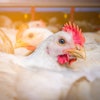Beta Hatch, a Seattle, Washington-based company industrializing the production of insects as a sustainable protein for animal feed, announced the appointment of Dr. Lisa Newman as its inaugural chief operations officer and a National Science Foundation (NSF) grant, both supporting the Company’s efforts towards scaling for commercialization.
Newman, a longtime agriculture professional and modern-day farmer, has spent her whole career in controlled environment agronomy, with extensive experience in automated indoor farming, food safety and scaling operations for commercialization. An Oxford-educated biotechnologist, Newman has a passion for helping companies achieve operational excellence.
Prior to joining Beta Hatch, Newman spent 13 years at DuPont Pioneer, where she designed and built a 140,000 square foot world-class, state-of-the-art, fully automated greenhouse with precision phenotyping and robust RFID track and trace capabilities. From Dupont Pioneer, she was recruited to her previous role where she served as COO for AeroFarms, the leader in vertical farming within the field of urban agriculture and producer of hyper-local, premium-quality baby leafy greens. Newman completed the construction, commissioning and operational start-up of AeroFarms' first commercial farm, the largest-producing indoor vertical farm in North America.
Newman joins the Beta Hatch team with an eye to translate her experience growing plants indoors to growing insects indoors in controlled environments.
“There’s a lot to be excited about here,” said Newman. “We’re getting ready to open our pre-commercial facility which means transferring to a semi-automated process. The next few months will be very important for the business and a huge learning curve as we work to refine our processes to scale the new commercial facility.”
Newman is equally excited about the prospect of working directly with farmers, whether as contract growers to produce mealworms or as recipients of frass, the protein-rich fertilizer produced by the mealworms.
“Many of the challenges we face growing insects are the same with growing plants indoors,” said Beta Hatch Founder and CEO Dr. Virginia Emery. “Controlling the environment, managing pests, optimizing for efficiency of labor and energy use; these are just some of the challenges Dr. Newman is helping us overcome. She is an experienced COO who is already translating her experience to our operations and she’s not afraid to roll up her sleeves and get dirty, which is essential for any start-up, particularly a farming startup.”
Newman couldn’t be joining Beta Hatch at a better time. The company has just completed construction of its precommercial facility, a 5,000 square foot farm and processing facility in SeaTac, Washington, and was recently awarded a Small Business Innovation and Research (SBIR) Phase 2 grant from the NSF. This $630,000 grant allows Beta Hatch to continue developing and to commercialize several key technologies that will lower the operating and capital costs of insect farming. Plans for the grant money include R&D of new rearing trays, the basic unit of production and at thousands of units, the most expensive element of an insect factory. Another immediate need is developing reusable materials for its breeding program and developing automated feeding and watering systems to control the costs of production.
Together, all the objectives in this project will cut the cost of producing insects and the cost of building insect farming facilities by more than half.
“This project allows us to continue our pioneering work in insect breeding, which is central to scaling up the production of insects as an alternative protein to feed the future,” said Emery.
“We expect to be operating at scale by year’s end, and are already designing our full scale commercial facility, to be built in 2019. Every week we are bringing down the cost of production while solving key challenges in scaling insects for agriculture.”

















